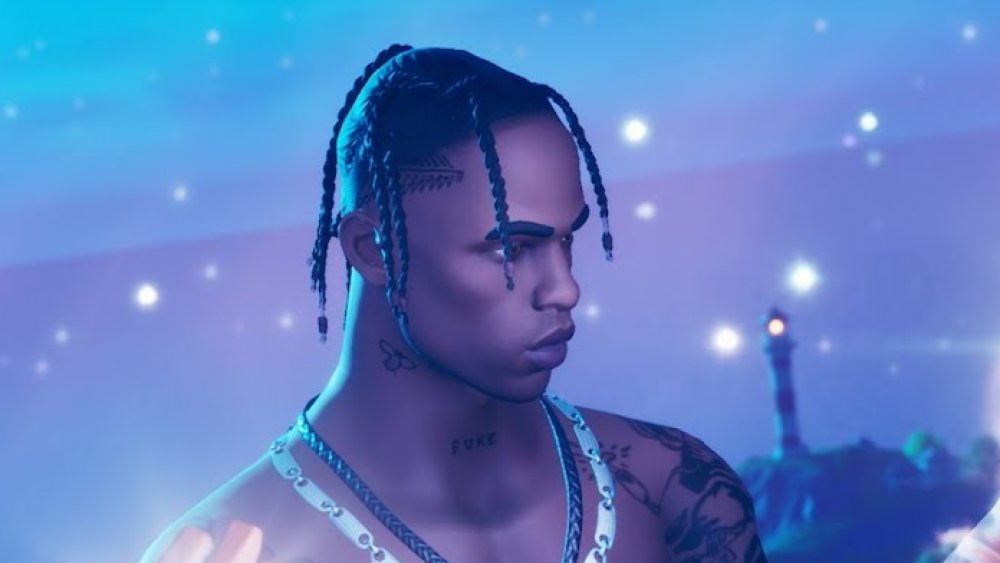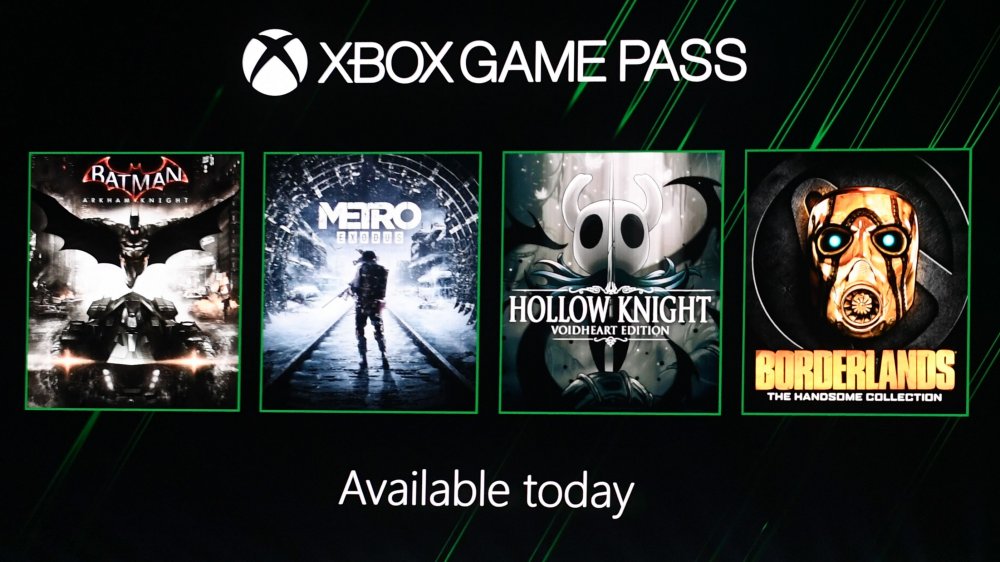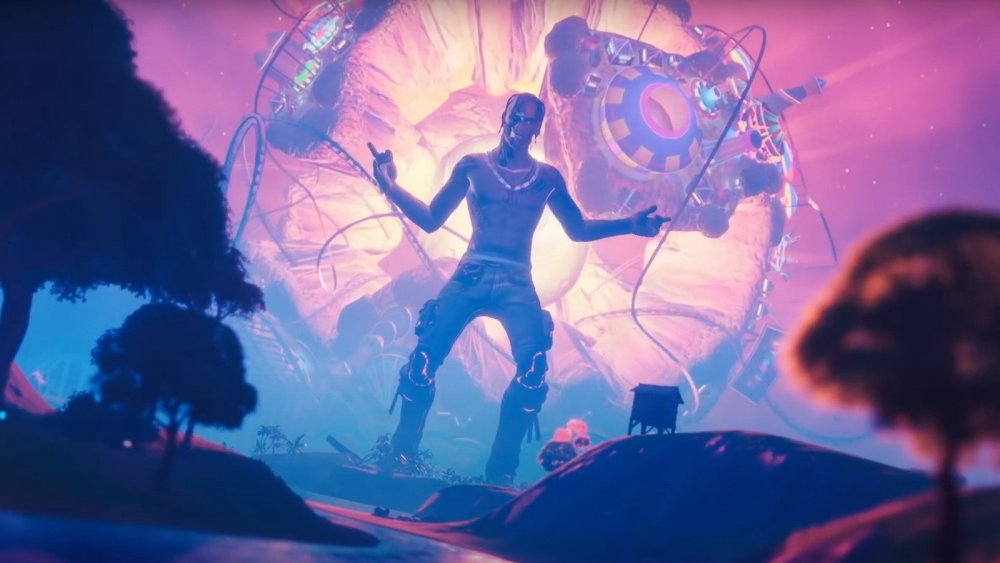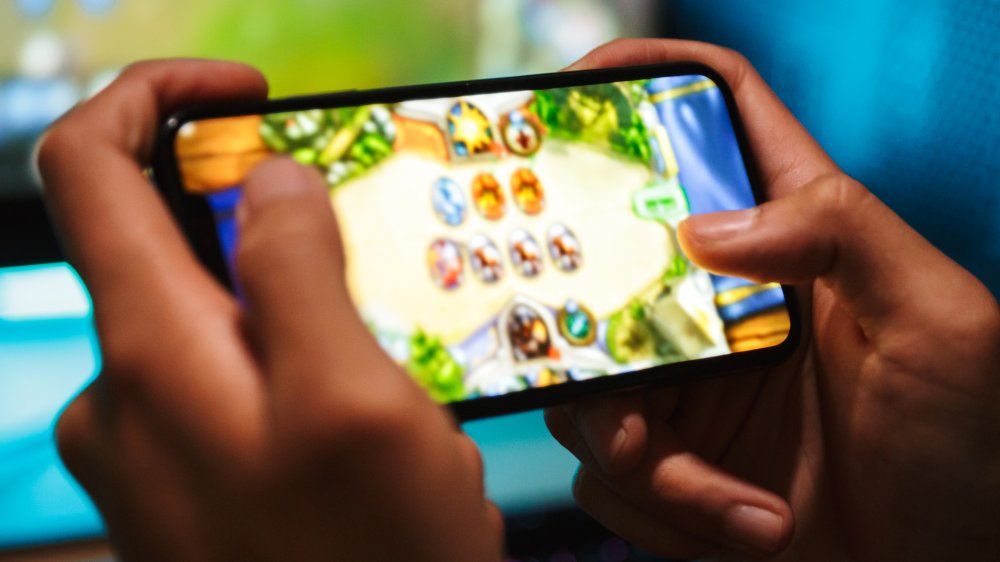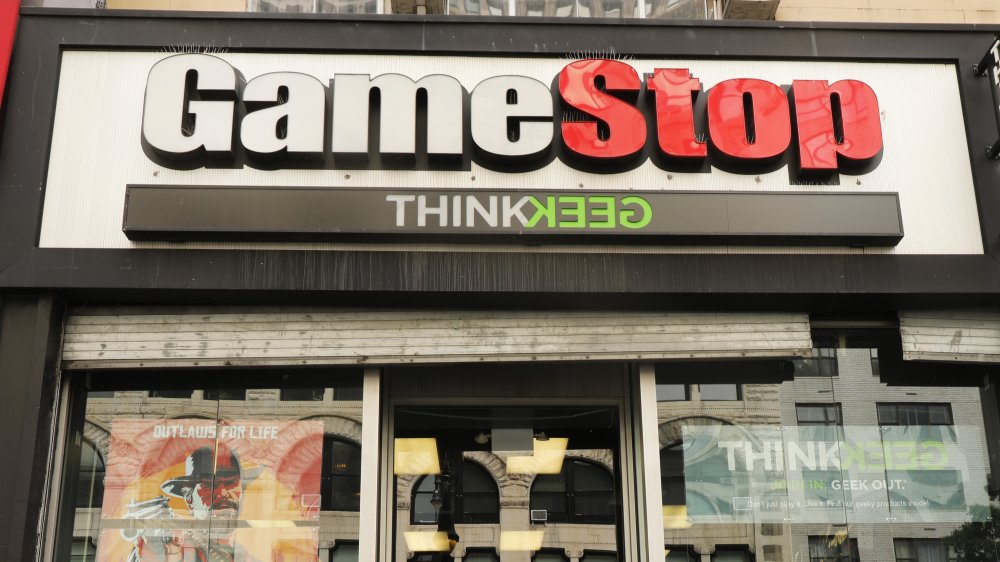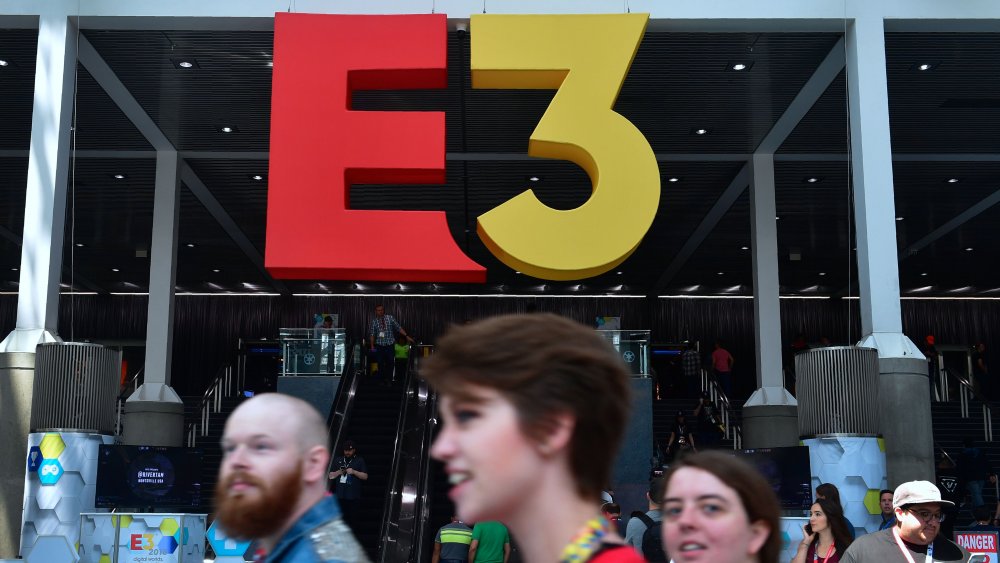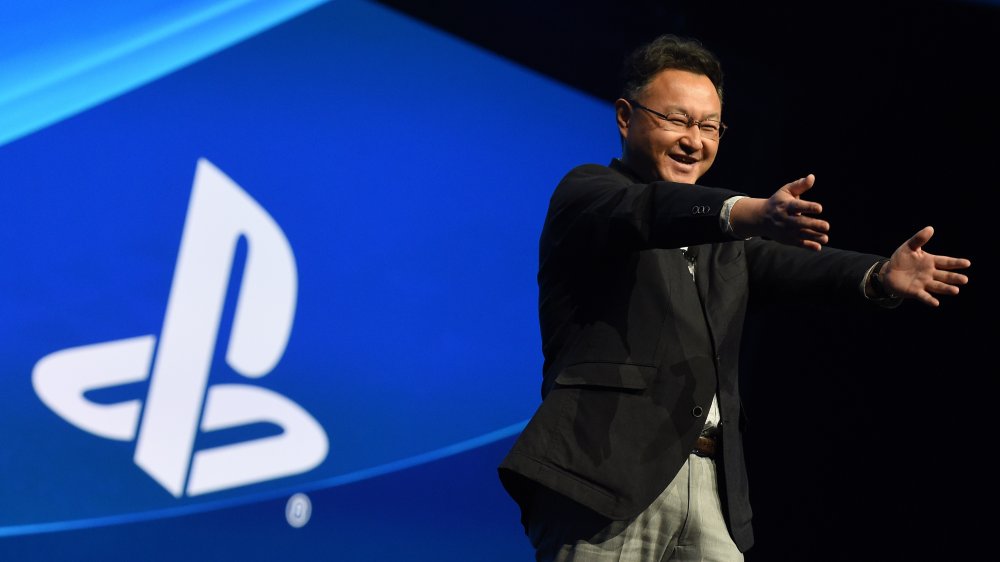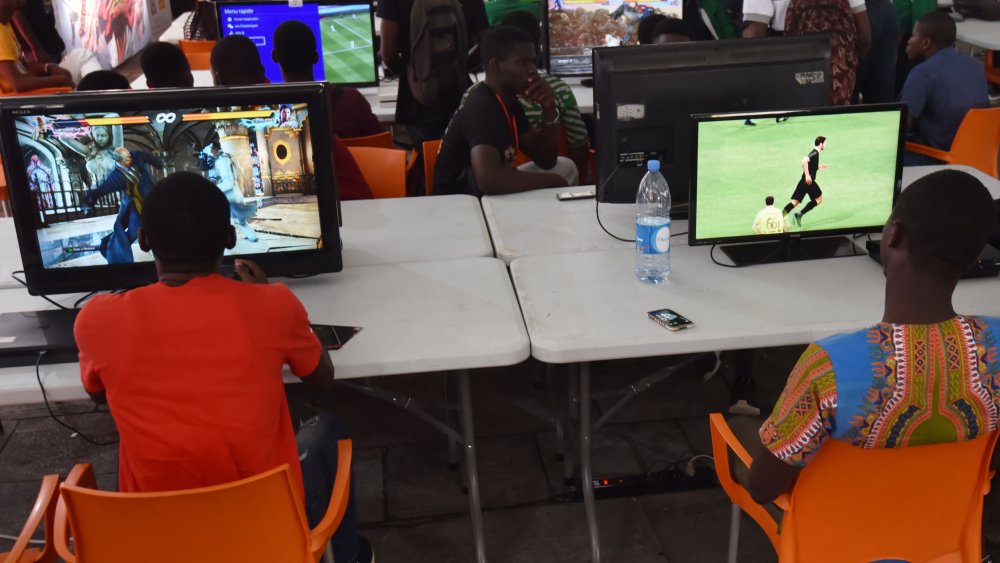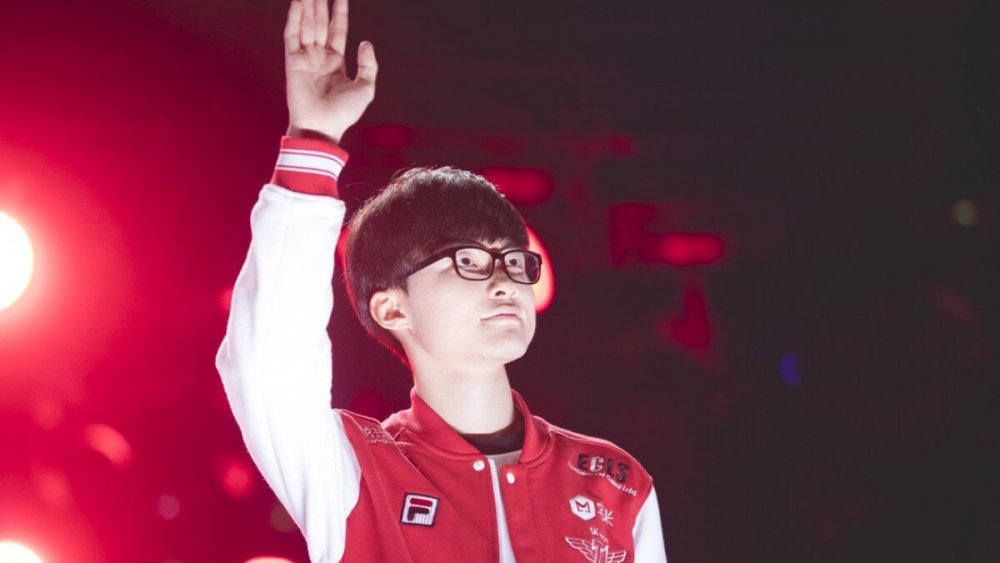2020 Is Changing Gaming And No One Noticed
Any way you look at it, 2020 was going to be a big year for gaming. The release of a new generation of consoles always heralds major transitions for the industry, and the upcoming launches of the Xbox Series X and PlayStation 5 look like they'll follow that pattern.
What would have been harder to predict, though, is how many other ways 2020 is poised to change gaming. So many institutional shifts are taking place that the next console generation may even start to look insignificant in comparison, and that's before you consider the effects the COVID-19 pandemic will have for years to come.
There's no telling whether any of 2020's biggest developments will play out the way experts expect, but you don't need a crystal ball to see some of the ways that the events of this year could alter gaming forever.
Remakes are teaching old games new tricks
Video game remasters are nothing new, but remakes are becoming a bigger and more exciting part of the industry lately. Rather than just slapping a new coat of paint on an old game, titles like 2019's Resident Evil 2 and Final Fantasy 7 Remake are using the originals as jumping off points for sometimes wildly different experiences.
It looks like the remake trend is only set to grow from here, too. After releasing remakes of the Crash Bandicoot and Spyro the Dragon series, Activision Blizzard announced in an earnings call that it plans to continue bringing out remakes into 2020. You can expect these reimaginings to carry over into the next generation, with Bluepoint Games working on a much-discussed mystery remake that's rumored to be Demon's Souls.
Though not all remakes are equally inventive, the security that comes from their easy name recognition could give developers plenty of leeway to innovate. At least so far, game remakes are more often worth getting excited about than dreading.
Game subscriptions are changing how players pay for games
Despite sticking at the same price point for several years, new game releases are still too expensive for most people to keep up with everything coming out. That, in theory, is where game subscriptions come in, offering a nearly unlimited amount of games for a tiny fraction of what they'd cost individually.
Services like Xbox Game Pass and Apple Arcade offer a library of games for monthly subscribers, much like Netflix does for movies and TV. It's a win for players, who can maintain multiple subscriptions for the price of one new game, but it might not be such a sweet deal in the long term. The question these subscription services will have to answer is whether they're also a good deal for developers.
It's probably true that game subscriptions expose small and lesser-known games to wider audiences, but it's not clear whether they can compensate creators fairly while charging so little. Developers themselves are split, with 27% of respondents to the latest GDC State of the Industry survey saying they were concerned that subscription services will devalue individual games, 26% saying they weren't, and the rest responding "maybe" or "not sure."
The cloud gaming experiment is just beginning
Depending on who you ask, cloud gaming could be the future of the industry or just an expensive diversion. Either way, it's not likely to go away any time soon.
On its face, the whole concept of streaming games from the cloud seems iffy at best. While the promise of high-end gaming without buying a new console may sound promising, that's offset by the need for a good internet connection. And the launch of Google Stadia, which was called a "disaster" by Paul Tassi at Forbes and equally unflattering things elsewhere, proved that it's a difficult puzzle even for a company with seemingly limitless resources and plenty of experience with network infrastructure.
Despite all that working against it, cloud streaming isn't dead yet. Microsoft and Amazon are testing the waters with Project xCloud and Tempo, and there hasn't yet been a game developed to take advantage of streaming's strengths. With the next console generation on the horizon, people who only play seasonal titles like Madden NFL may decide to leave the console cycle entirely and embrace the cloud.
Online games are becoming virtual hangouts
Before the rise of online games, writers like William Gibson dreamed of cyberspace: a virtual world where users could connect and pass the time unburdened by the limitations of reality. Game and web developers have explored that idea throughout the internet's history, but we may be on the verge of a viable community in cyberspace.
At least, that's the dream that players of games as diverse as Fortnite, Animal Crossing, and Red Dead Redemption 2 seem to be chasing. Fortnite's recent in-game Travis Scott concert pushed the bounds of virtual social events and had Pitchfork speculating on whether cyberspace concerts could be the future.
In a more mundane way, Animal Crossing: New Horizons has turned into a de facto gathering space for friends who can't meet in person due to the COVID-19 outbreak. The global disaster has also forced businesses to adapt to online work, with some users on Twitter even reporting that they held meetings in Red Dead Online. It remains to be seen whether these virtual meetups will persist, but they've at least got a lot of people thinking about cyberspace in a whole new way.
AAA developers are moving to mobile
Mobile games can sometimes seem like an entirely different medium from console and PC games, but some developers are looking to change that. Huge developers — including EA, Bethesda, Riot, and Activision Blizzard — are porting some of their most popular franchises to mobile, with admittedly mixed results.
While games like Elder Scrolls: Blades, Hearthstone, and Call of Duty: Mobile do great on iOS and Android, console and PC players aren't always willing to make the jump. Blizzard's announcement of Diablo: Immortal was infamously met with anger and disbelief by hardcore Diablo fans, though a lot of that can be chalked up to the developer hyping up the announcement too much.
When it does work, developers have a lot to gain by going mobile. Analytics firm App Annie reported earlier this year that mobile game spending was set to top $100 billion, and that was before the coronavirus outbreak turned every moment of the day into an excuse to stare at your phone and sent mobile game downloads through the roof. Hardcore gamers might not be as enthusiastic about more developers turning to mobile platforms, but the gold rush could lead to more impressive mobile games in the long run.
Digital sales are leaving physical games behind
The writing has been on the wall for a while now, but it's only becoming more apparent that digital sales are leaving physical games in the dust.
The digital wave came for PC games first, with the convenience of platforms like Steam making shopping for physical PC games seem old-fashioned and cumbersome. Then, last year, Sony revealed that digital sales had overtaken physical on the PlayStation 4 for the first time.
That shift may draw a resounding "so what?" from a lot of players, but the effects could actually be far-reaching. The industry has already begun to see them, in fact, with The Motley Fool reporting GameStop will be permanently closing 300 stores this year, after closing 320 stores worldwide in fiscal 2019.
While that still might not be a big deal for players who've already made the switch to buying digital games, it could be trouble for those with poor internet connections who rely on physical stores to get their games. It could also be a disaster for fans of even slightly out-of-date games, leaving secondhand sites like eBay as the main places left to buy used games.
Overdue culture changes are finally making developers more welcoming
In recent years, it's become apparent that the aura of fun and creativity around working at a game developer often hides a harsher truth. The latest GDC State of the Game Industry report shows that turnover in the game industry is incredibly high, crunch is a persistent problem, and people from marginalized groups are vastly underrepresented.
Despite that grim picture, there are some positive signs. Riot and Rockstar — two studios behind some of the biggest names in gaming — also had cultures allegedly filled with rampant sexism, discrimination, and overwork exposed in recent news stories. Since those stories came to light, Kotaku reports that massive institutional changes are taking place, giving workers hope that things might be getting better.
The industry still has a long way to go on improving diversity, but of the 72% of developers who told the GDC that their studio had invested at least a little in inclusion initiatives, 96% said they were at least slightly successful and 30% said they were very or extremely successful. Crunch also remains a problem, but one that the GDC survey shows is slowly improving.
E3's cancellation could change game announcements forever
Players and industry watchers have gotten used to the annual cycle of massive conventions that bring a deluge of trailers, announcements, and hype about upcoming games. That is, until the coronavirus made crowding into a poorly ventilated convention center with thousands of other people seem about as risky as a high-speed car chase.
Canceling E3 may have seemed unthinkable at one point, but this year, it's just one of many conventions to shut its doors. While that left a lot of fans disappointed, it also forced developers and publishers to get creative and a little scrappy.
Rather than relying on expensive stage shows and professionally decorated booths, developers are instead turning to ad hoc livestreams to promote their games. The result has been a slower trickle of news instead of one concentrated burst, organized into streaming events like the Summer Game Fest and single-publisher presentations like Sony's State of Play.
It's all well and good for those already plugged into game industry news, but publishers may have a harder time reaching more casual players this way.
Indie development is at a crossroads
Independent game development exploded in the last decade, bringing some of the last few generations' best games from small studios and opening the field to new voices. That's due in part to better access to the tools and knowledge needed to make games and to consoles more actively courting indie developers.
With the next console generation coming up soon, small studios could have access to even more powerful platforms than before, but they might also be facing new roadblocks. The gulf between indie and AAA games is likely to get even wider as large studios push next-generation consoles to their limits in a way that most indie developers can't.
On the other hand, platform holders are actively reaching out to indie developers to bridge that divide. Last year, Sony appointed Shuhei Yoshida, former chief of Sony Interactive Entertainment Worldwide Studios, as the head of a new division focused on "nurturing external independent creators," according to Polygon. With that help, indie developers might find it easier than expected to continue putting out the innovative games that led Sony to call them the "lifeblood of the industry."
Loot boxes may get packed up for good
From The Elder Scrolls: Oblivion's horse armor to Destiny 2's Eververse, microtransactions have often rubbed players the wrong way, but the rise of loot boxes took things to a new level.
By selling fans random in-game items rather than putting the most-desired goods on sale directly, publishers were able to rake in money from loot boxes. That strategy eventually backfired, as regulators took a look at the practice and said, yeah, that's basically gambling.
Some developers reacted by removing loot boxes, like Psyonix did with Rocket League, but others have kept loot boxes intact. However, the industry at large needs to take some action or risk legislation that it will have no choice but to comply with. One of the most recent moves was the ESRB introducing a new loot box disclosure in ratings.
That might abide for now, but loot boxes are likely to disappear or at least become much less common in the next generation. That means it won't be long until publishers find another, hopefully less controversial, way to keep making money off their games aside from the sticker price.
Streaming is growing in every direction
Streaming has been one of the biggest developments in gaming in recent years, and it looks like it's only going to keep growing. Starting as a niche hobby, streaming has evolved into an industry of its own, with a unique culture and a stable of newly minted celebrities.
Celebrity streamers seem likely to keep getting more attention in coming years, as platforms like Mixer and Twitch fight it out for the biggest stars. As Polygon reports, streamers are leaving Twitch in droves, beginning with Tyler "Ninja" Blevins, as other platforms offer big checks and other benefits like partnerships with major companies.
Streamers have also found more inventive ways to use their platforms, like the recently launched Animal Talking, a streaming show set in Animal Crossing: New Horizons that The Verge called "2020's hottest late-night talk show."
Developers are taking notice of streaming as well, adding features into games that allow viewers to interact with streamers by spawning monsters or deciding what loot will appear. According to The New York Times, Amazon has plans to introduce games built specifically for integration with Twitch, which it owns, in summer 2020.
Gaming is becoming truly global
The game industry is booming everywhere, with SuperData reporting (via VentureBeat) that worldwide revenue hit $120.1 billion in 2019. Historically, the biggest markets for gaming have been the Asia-Pacific region, North America, and Western Europe, but they're starting to get some competition.
As Mirae Asset Global Investments writes, emerging markets like Latin America, the Middle East, and Africa are expected to increase their gaming sales the most in coming years. That might not mean much for players outside those regions immediately, but it could change the shape of the industry in years to come.
Gaming in emerging markets tends to focus on mobile more than on consoles or PC, so you could see developers shift even more attention to mobile games. More importantly, developers could start exploring a wider range of stories that appeal to audiences in other areas. Even further out, games getting more popular in new regions could mean more game developers coming from places like Latin America, Africa, and the Middle East, which would help make the industry more diverse and give players everywhere the benefit of games made from different perspectives.
Esports are still on the rise
Just as streaming has turned some gaming personalities into celebrities, esports has turned others into athletes and built a massive audience at the same time.
Esports revenue is on the rise according to analytics firm Newzoo. As reported by VentureBeat, Newzoo data shows esports revenue climbing above $1 billion for the first time in 2020, based on metrics that actually skew the figures down from previous estimates that Newzoo says some media outlets called overhyped.
Like so many other developments in gaming in 2020, the coronavirus outbreak has had an effect on esports. The year began with cancelations of major esports events, including Overwatch League and League of Legends, according to The Esports Observer.
While esports could no longer pack fans into stadiums, home viewership also massively increased, with The Guardian writing that Twitch's audience grew by a third in March, just as stay-at-home orders became more widespread worldwide. Newzoo says esports will have a total audience of 495 million people in 2020. Even traditional sports are incorporating esports events with their own seasons canceled, as Formula 1 racing turned to virtual races to replace its regular on-track events.

